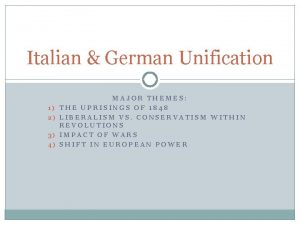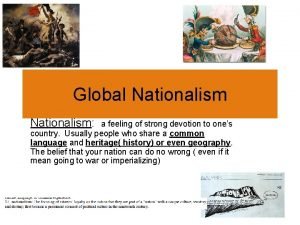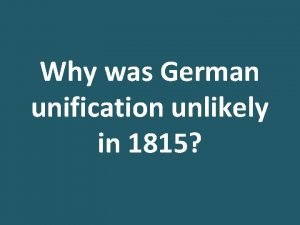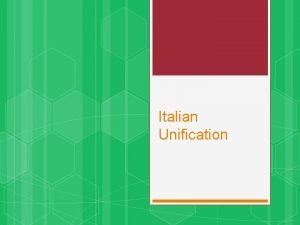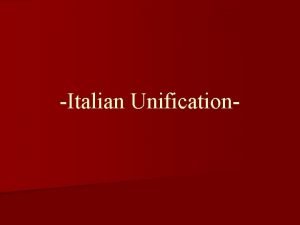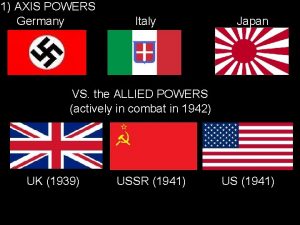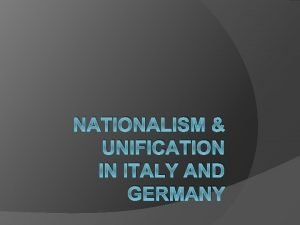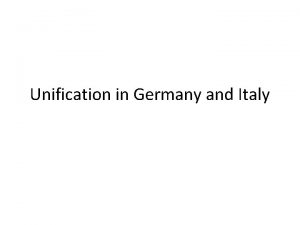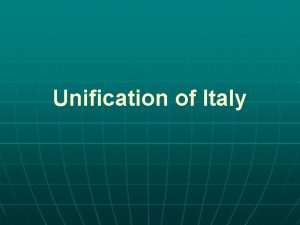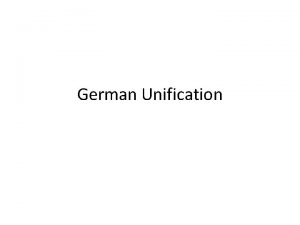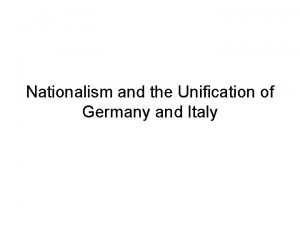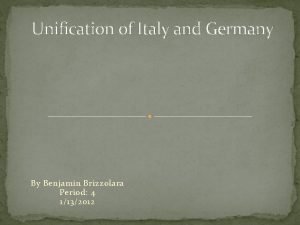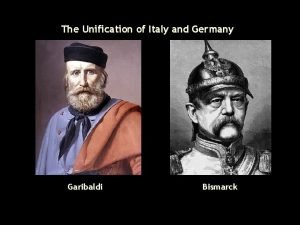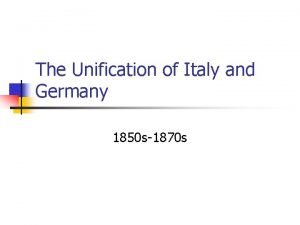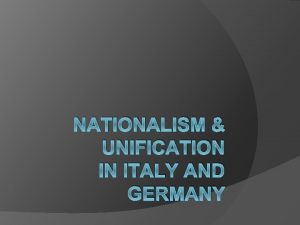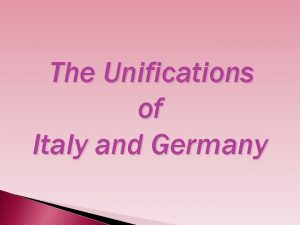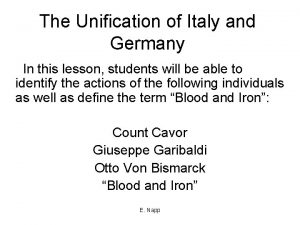The Unification of Italy and Germany In this














- Slides: 14

The Unification of Italy and Germany In this lesson, students will be able to identify the actions of the following individuals as well as define the term “Blood and Iron”: Count Cavor Giuseppe Garibaldi Otto Von Bismarck “Blood and Iron”

Nationalism is the belief that each ethnic group should have its own national state and government. For centuries, Italy had consisted of smaller states. Italians wanted unification.

In 1852, Count Cavour became the Prime Minister of the Kingdom of Piedmont or Sardinia. With French help, Cavour drove the Austrians out of Northern Italy after a war in 1859.

Cavour then annexed most of the other states of northern and central Italy.

The nationalist leader, Giuseppe Garibaldi, overthrew the king of Naples in the south. He then joined Naples to Cavour’s enlarged Piedmont.

By 1860, Italy had become a united kingdom.

National unification failed to end the cultural and economic divisions that separated Italy’s north and south.

Like Italy, Germany consisted of many smaller states. German liberals had failed to unite their nation in the revolutions of 1848.

Prussia was one of the largest German states. Its Prime Minister, Otto von Bismarck, used skillful diplomacy and Prussian military power to achieve German unification.

Otto von Bismarck followed a policy of “blood and iron” to achieve his goals.

“The greatest questions of the day will not be settled by speeches and majority decisions but by iron and blood. ” Otto von Bismarck

Germany achieved unification in 1871. The Prussian king became the Kaiser (emperor) of all Germany.

Although there was a national assembly, it was controlled by conservative Prussian landowners, not the working people.

Questions for Reflection: • Define nationalism. • Who was Count Cavour and what did he do? • How did Giuseppe Garibaldi help Count Cavour? • Why did Otto von Bismarck believe in a policy of “blood and iron”? • Describe German unification.
 Zollverein germany map
Zollverein germany map Strong devotion
Strong devotion St an
St an Germany before unification
Germany before unification Unification of germany class 10 mind map
Unification of germany class 10 mind map Unification of italy summary
Unification of italy summary Unification of italy class 10
Unification of italy class 10 Axis germany italy japan
Axis germany italy japan Nationalism in italy and germany
Nationalism in italy and germany Nationalism case study italy and germany
Nationalism case study italy and germany German and italian unification compare and contrast
German and italian unification compare and contrast Chapter 23 lesson 3 nationalism unification and reform
Chapter 23 lesson 3 nationalism unification and reform National unification and the national state
National unification and the national state Prolog langage
Prolog langage What was the most serious obstacle to german unification?
What was the most serious obstacle to german unification?
